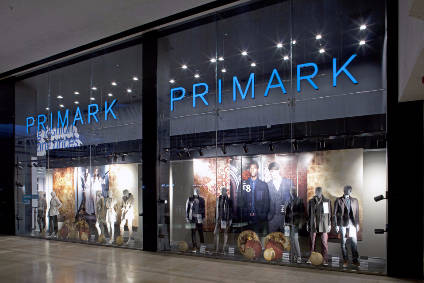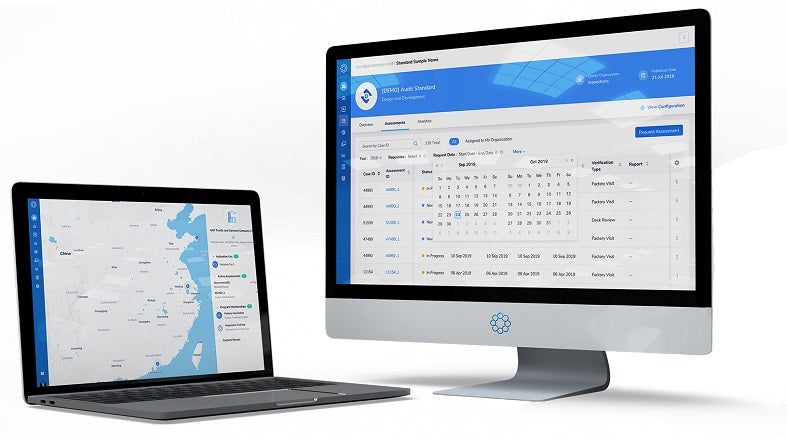
Associated British Foods-owned Primark says it will stall prices beyond the spring/summer period next year in a bid to support its core proposition of everyday affordability and price leadership.
The announcement came as the retailer revealed a 43% increase in total sales to GBP7.7bn (US$8.8bn) for the 52 weeks to 17 September.
But despite this, like-for-like sales have failed to beat pre-pandemic levels, stemming particularly from weakness in Continental Europe, which has seen a more cautious consumer sentiment.
Apparel analyst for GlobalData, Louise Deglise-Favre explains consumer desire for affordable fashion amid the cost-of-living crisis has contributed to the retailer’s growth but has not been enough to exceed pre-pandemic levels.
Overall, like-for-like sales fell 10% on FY2018/19 levels.
“While Primark has increased its prices amid soaring inflation, operating profit margin was still lower than expected at 9.8%. It has committed to limit further price rises for the next financial year, but this will inevitably impact its profitability further, with operating profit margin now expected to be lower than 8% in FY2022/23. Despite this, Primark’s stance on prices will help make it more desirable as consumers increasingly cut back on non-essential fashion spend, and will allow it to better compete with its value and mass-market competitors like the grocers, Matalan and Pepco, many of which are likely to pass additional costs onto consumers.
Primark FY results breakdown
- For the full year, Primark recorded total sales of GBP7.7bn, 43% ahead of last year
- Full year adjusted operating profit margin stood at 9.8%
- ABF said Primark had seen UK like-for-like sales and market share grow to broadly in line with pre-Covid levels after seeing growth in footfall as markets emerged from the pandemic
- But weaker like-for-like sales in Continental Europe were seen given a cautious consumer sentiment.
George Weston, chief executive of Associated British Foods, said: “Sales, margin and profits at Primark increased significantly as more normal customer behaviour resumed after the pandemic. Significant progress was made in building out Primark’s digital capability, which will be a key element in the future development of Primark.
“Looking ahead, substantial and volatile input cost inflation will be the most significant challenge in the new financial year, and our businesses will continue to seek to recover these higher costs in the most appropriate way. Primark has faced significant input cost inflation and sharply moving currency exchange rates [but] we have decided to hold prices for the new financial year at the levels already implemented and planned and to stand by our customers, rather than set pricing against these highly volatile input costs and exchange rates.
“As a result, in the current financial year, we expect significant growth in group sales from pricing in food, as well as from some pricing and from space expansion at Primark. Our outlook remains unchanged. We continue to expect group adjusted operating profit and adjusted earnings per share to be lower than the financial year just closed.”
Primark moves to hold prices
ABF said the decision to hold prices was in the “best interests of Primark, supporting our core proposition of everyday affordability and price leadership and supporting market share growth over the longer term.”
As a result it expects Primark’s adjusted operating profit margin for next year to be lower than 8%.
Looking ahead, the company remains focused on returning to an adjusted operating profit margin of some 10% as commodity prices moderate and consumer confidence improves.
It adds it has already been managing the challenges of supply chain disruption, inflation in raw material and energy costs and in labour rates, alongside higher purchasing costs. In addition to previously announced price increases, there are plans to improve store labour efficiencies and these will partially offset these inflationary pressures.
Most industry experts are agreed that Primark’s “bold move” of not passing cost increases on to customers at a time when spending is already squeezed, could drive loyalty.
Sarah Painter, vice president of customer experience at Merkle Experience & Commerce UK, comments: “It’s crucial that audiences are put first amid tougher times, which Primark is undoubtedly demonstrating. By offering full transparency and validity and not shying away from showing its struggles as the cost of doing business soars, it’s proving to be an authentic partner to its customers.
“The British Retail Consortium (BRC) has today urged the government to freeze business rates so that retailers can avoid passing on higher costs to customers amid plummeting spending. Non-essentials continue to take a step back, marking a gloomy start to the festive season.
“Primark is now giving shoppers a reason to return when tougher times simmer down – marking a future growth opportunity in the business of loyalty. Prioritising loyalty will give brands the best chance at long-term success, a glowing prospect in the current economic turmoil.”
While Richard Lim, CEO, Retail Economics comments Primark has delivered “impressive results against the harsh economic backdrop.”
“Primark is well-positioned to benefit from consumers who are trading down and putting lower costs at the heart of their buying decisions. Many shoppers are prepared to sacrifice perceived quality and the convenience of online delivery for lower costs and it’s driving people back into stores across parts of the sector.
“However, there’s a perfect storm of cost pressures facing the retailer from spiralling input and operating costs and the impact of a weaker pound and rising interest rates. The retailer has taken a bold decision to stall price increases beyond the Spring/Summer season next year at the expense of profitability as they look to protect and build market share in the longer term. It’s inevitable that margins will be hit, but they are likely to weather the storm better than most with a value-driven proposition and diversified business as the economy enters recession.”
In September, Primark sounded a profit warning in response to soaring energy prices.
From underwear to T-shirts, to dresses and jeans, the retailer says it will hold prices this autumn across many of its most popular products. It means consumers will be able to purchase long sleeve T-shirts from GBP1.80, sweatshirts from GBP4, dresses from GBP4.50, and jeans from GBP6.
Padded jackets are also being held at GBP12, briefs at GBP3.50 for a pack of ten, and socks at GBP2.80 for a pack of the same size.
"loyalty" - Google News
November 08, 2022 at 07:20PM
https://ift.tt/yZu8Kce
Primark move to hold price increases will boost loyalty, sales - just-style.com
"loyalty" - Google News
https://ift.tt/mhZXx5N
https://ift.tt/PRo2AX6
Bagikan Berita Ini

















0 Response to "Primark move to hold price increases will boost loyalty, sales - just-style.com"
Post a Comment